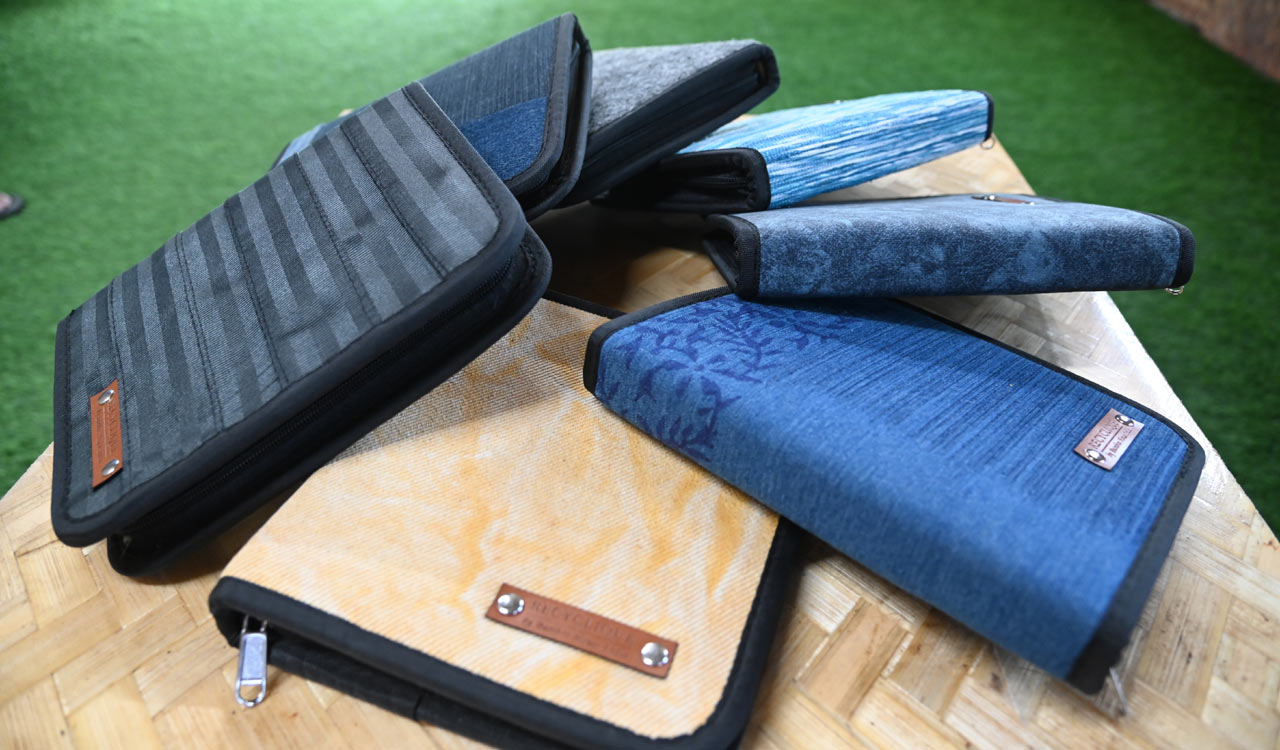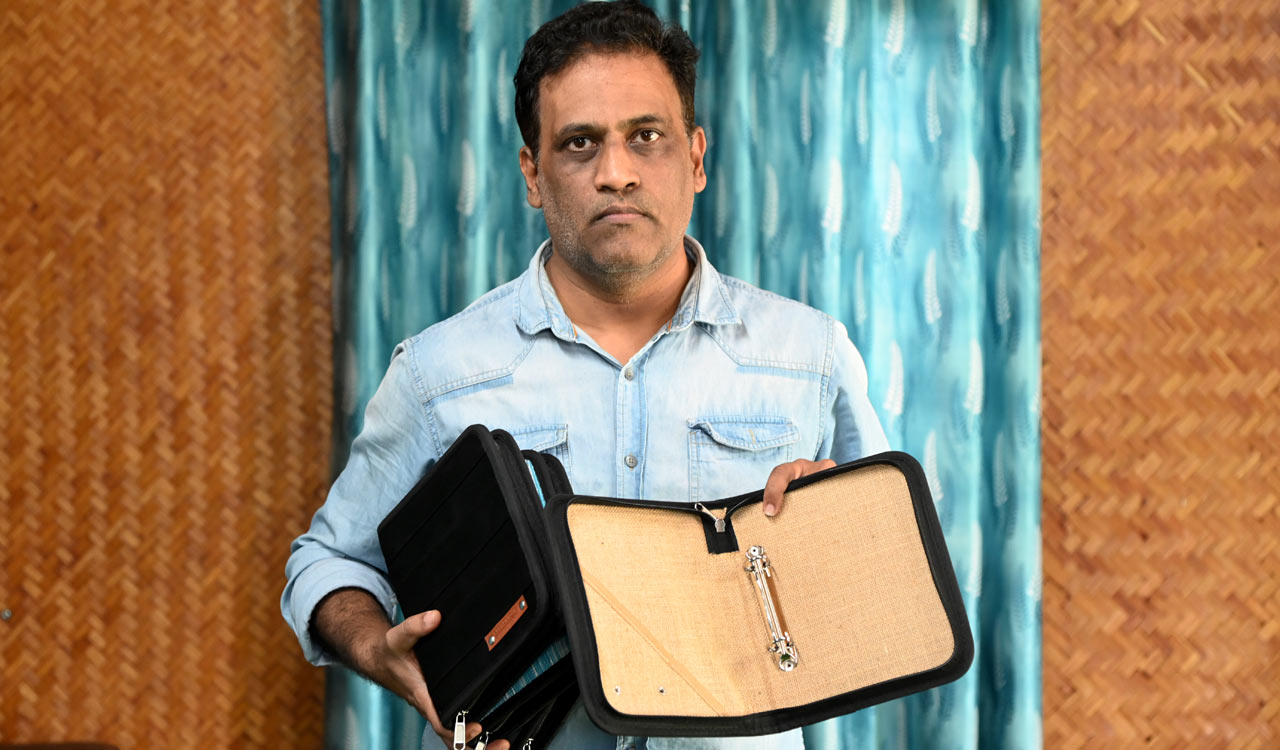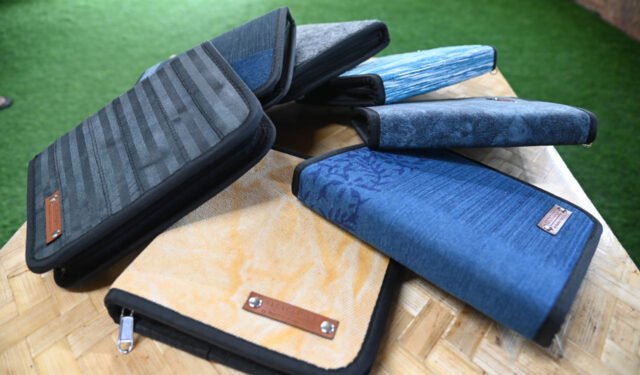Thanks to the efforts of the social enterprise from Hyderabad, Bamboo House India, nearly 50 women from marginalized communities were given guidance on tastefully stitching together discarded material, which was earlier destined to landfills, and earn livelihood.
Published Date – 11 December 2024, 07:46 PM

Photos: Surya Sridhar
Hyderabad: In a unique initiative at recycling car-seat belts, car covers, discarded denims and canvas materials, a group of women hailing from financially vulnerable communities in Hyderabad have handcrafted eco-friendly diaries and other stationary that can become year-ender gift articles.
Thanks to the efforts of the social enterprise from Hyderabad, Bamboo House India, nearly 50 women from marginalized communities were given guidance on tastefully stitching together discarded material, which was earlier destined to landfills, and earn livelihood.
The project of transforming post-industrial and post-consumer waste into eco-friendly diaries and bags is a nearly two-year initiative. “At present, there is no concept of separating denim from household waste in Hyderabad. In the landfills, the denim and other discarded cloths or textile material simply get mixed with domestic waste,” says Prashant Lingam, the co-founder of Bamboo House India.

India is among the largest importers of denims and textile waste in the world. In fact, the port of Ahmadabad receives all the denim and textile scrap from all parts of the world.
“To make a pair of denims, it approximately takes 10,000 liters of water. That’s why it is important for us to find a way to recycle this material specifically for sustainability. A lot of research and phone calls eventually led us to Ahmedabad, where large scale discarded seat belts, car covers, denim and textile scrap is collected by vendors in wholesale. It took over one year to address the challenge of sourcing the material,” recalls Prashant Lingam.
Prashant, who co-founded Bamboo House India along with Aruna Lingam, points out that by upcycling discarded materials such as textile scraps, car seat belts waste, car seat cover waste, jeans waste post-industrial denim waste and canvas waste, the initiative tackles environmental challenges while creating meaningful livelihood opportunities for marginalized women.
These unique diaries are handcrafted by women artisans, empowering them with skills and sustainable income sources. The initiative not only reduces waste heading to landfills but also promotes a circular economy model by repurposing materials that would otherwise contribute to pollution.
“This initiative embodies our dual mission of environmental conservation and community empowerment. The diaries are set to make an impactful statement for organizations and individuals seeking green alternatives, aligning with Bamboo House India’s ongoing commitment to fostering sustainable and inclusive development,” says Aruna Lingam.








